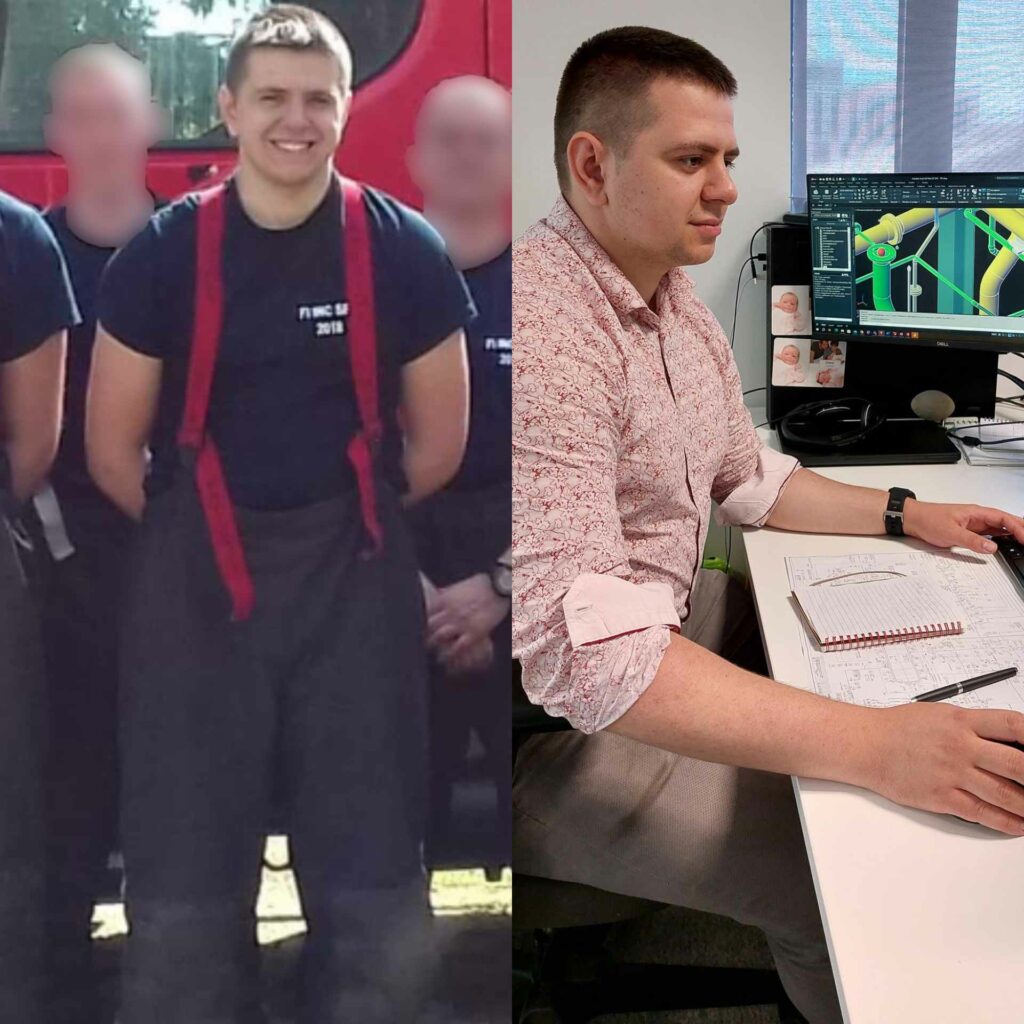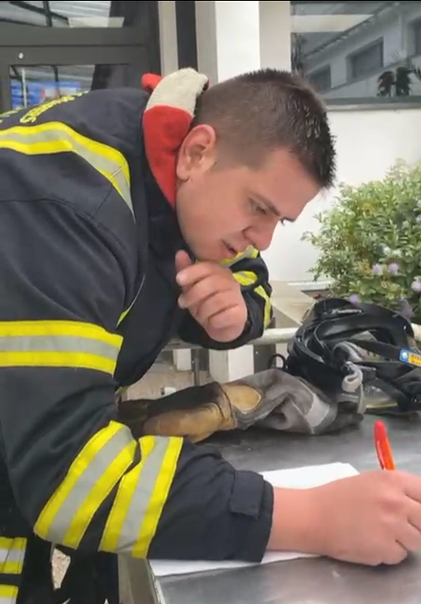François, always willing to help, day or night!

For the past two years, François has been working as a design engineer in our Lyon branch, in the General Installation Department, on a wide range of projects in various sectors: chemicals, oil and paper.
A volunteer fireman outside the office, it’s a vocation he’s found for himself. He was kind enough to share his experience with us.
Pompier volontaire en dehors des bureaux, c’est une vocation qu’il s’est trouvé. Il a bien voulu partager son expérience avec nous.le métire
How long have you been a volunteer firefighter?
I’ve been a volunteer firefighter for seven years now. I took a 6-month training course when I was 18. At the time, I was a volunteer at a fire station in the Paris region, and then I moved here to Lyon where I continued my activity. Today I’m a corporal.
What motivated you to become one?
Becoming a firefighter was a childhood dream. I was impressed by the red fire engines I saw on my way home from school. The idea matured and I wanted to turn it into a project. I wanted to help people, to feel useful. After passing the various aptitude tests and training courses, I discovered life in the barracks and the spirit of camaraderie. It was a great help to me at an age when I was asking myself a lot of questions. I also met colleagues who became friends.
What are your areas of expertise?
I’m trained to be operational in all types of intervention: SAP (Secours à Personnes), DIV (opérations diverses), INC (Incendie), SR (Secours Routier). We go out in teams, each with his or her own vehicle, depending on the role to be played and the type of response. For my fire station, in 2022, we counted 8089 interventions, or 22 per day.
What qualities do you think it takes to become a firefighter?
You have to empathize, put yourself in the shoes of the person you’re helping and anticipate how they might be feeling. I’d say that medical assistance isn’t enough; it’s also about getting close to people and reassuring them. Being a firefighter also means constantly questioning yourself to find out what you could do better, and approaching interventions with caution. On the contrary, too much self-confidence can lead to unnecessary risk for those involved. Being organized is essential: everyone knows what they have to do and what others are doing. We also develop reflexes and automatisms that enable us to act quickly.
Could you tell me about an intervention that made an impression on you?
I’d just come out of fire training. You have to know that when you go out on a fire call, you’re always in pairs and you don’t split up for safety reasons.
And the second week, I was with a friend [editor’s note – the one who had prepared him to pass the training]. That day, we started at 7pm. After the daily checks and a meal, we went to bed. The beeps started ringing: our boss was announcing an apartment fire. It was the first time I’d taken part in this type of intervention. The apartment in the building was completely engulfed in flames, but luckily all the victims had evacuated in time.
The final word?
This vocation forces us to make sacrifices and spend less time with our loved ones. We’re not necessarily available at the same time, so it can be difficult to plan something together. But being a volunteer firefighter has given me a lot so far. I’ve developed a rigor that I’ve been able to put to good use in my professional life. It has also taught me to be resilient: after an intervention, you have to be there if a colleague isn’t feeling well, and take a few minutes to reassure him or her; something I also do with my family and friends on a daily basis. Beyond that, wearing the firefighter’s uniform is a source of pride and a commitment that we owe to those who have gone before us. Finally, I’d say that being a firefighter enables me to look at events with more distance and wisdom.
